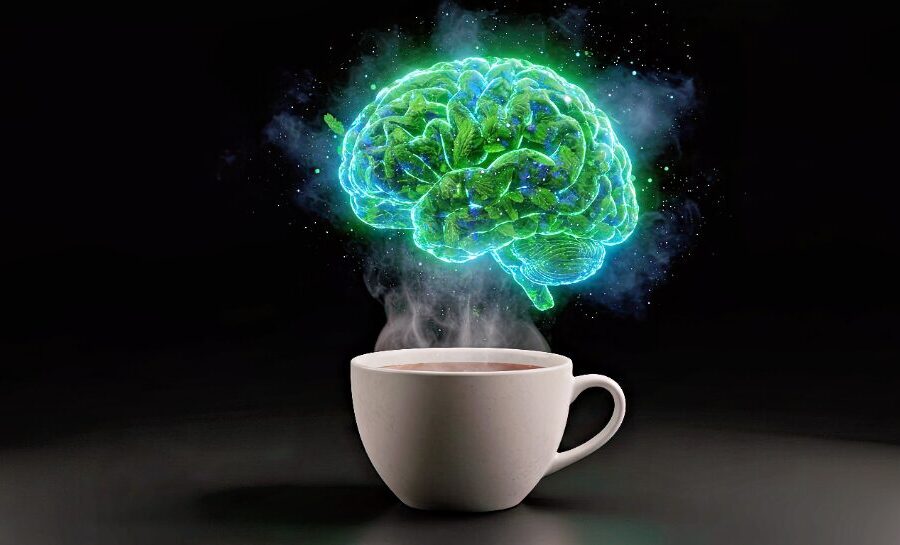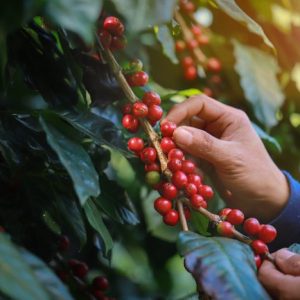Cognitive support beverages are among the hottest categories this year

Image credit: AdobeStock
Energy drinks, nootropic beverages, and clean energy are among 2025’s hottest food & beverage categories. Consumers –especially the ever-important millennial and Gen Z demographics – are also looking for new ways to support brain health.
Given its continued popularity and constant innovation, the energy drink market is primed for strong growth. In 2024, demand for energy drinks increased nearly 10%, surpassing USD $22 billion in consumer sales, according to Nielsen IQ. Additionally, the market research firm reports that caffeine-related online searches skyrocketed in the past year.
Many consumers want beverages that will help them meet their personal health goals. According to Innova Market Insights, sugar-free, vegan, and reduced calorie are among the top claims made in the energy drinks market in the United States and Canada. A new report from Cognizin, Crafting the Smarter Beverage, reveals that as individuals seek more ways to support their cognitive health, beverage brands must innovate to offer multidimensional brain health benefits. Cognitive support ingredients provide synergistic benefits to energy drinks and other caffeinated beverages.
A 2024 Kyowa Hakko survey of US found that when it comes to improving mental energy, most consumers want a sustained effect. But there’s a difference between those who consume cognitive supporting beverages and those who use supplements. Beverage consumers are more likely than supplement consumers to look for short bursts of mental energy. That’s likely because they also struggle with daily focus and attention.
There are many factors that fuel consumer purchases of energy drinks and caffeinated beverages. The Kyowa Hakkoh survey lists personal lifestyle as a key factor motivating cognitive health consumers to purchase products like energy drinks and brain health supplements.
Per Kyowa’s survey of 1,023 cognitive health consumers, 53% expressed interest in beverages to support cognitive health, while 41% reported having already consumed drinks for cognitive support. “Cognitive health consumers” are defined as consumers who are interested in consuming products for cognitive support. More than one-third (35%), report consuming more energy drinks now versus five years ago. The study also found that cognitive beverage consumers tend to be younger and they are more likely to be parents with children still at home.
It is not just ‘energy drink’ providers embracing the cognitive health category. Coffee and tea companies, are actively introducing cognitive health SKUs. In just this month alone, two coffee and tea brands – NutraTea and Unconform Cold Brew – launched cognitive health and nootropic lines (https://www.teaandcoffee.net/news/37551/unconform-launches-nootropic-rtd-cold-brew-coffee-line/, https://www.teaandcoffee.net/news/37498/nutratea-launches-moringa-leaf-and-ashwagandha-and-yerba-mate-herbal-blends/). Caffeine is the primary stimulant in numerous energy focused beverages, and of course, in coffee and tea drinks. The Cognizin study notes that as a functional benefit, cognitive support plays a complementary role in energy drinks, which rely heavily on caffeine to stimulate a sense of alertness, wakefulness, and feelings of energy. And while the coffee and tea SKUs do feature caffeine, a natural stimulant, one herbal ingredient that is growing in popularity in cognitive health coffee and teas is ashwagandha, also known as ‘Indian ginseng’, renowned for its ability to reduce stress and anxiety, improve sleep, support cognitive function. Both coffee and tea product launches this month feature ashwagandha.
The energy drink category is still a young one, and even younger within the coffee and tea market. Both categories are poised for growth as consumers search for healthier and natural alternatives offering cognitive support than energy drinks.
- Vanessa L Facenda, editor, Tea & Coffee Trade Journal, [email protected]






